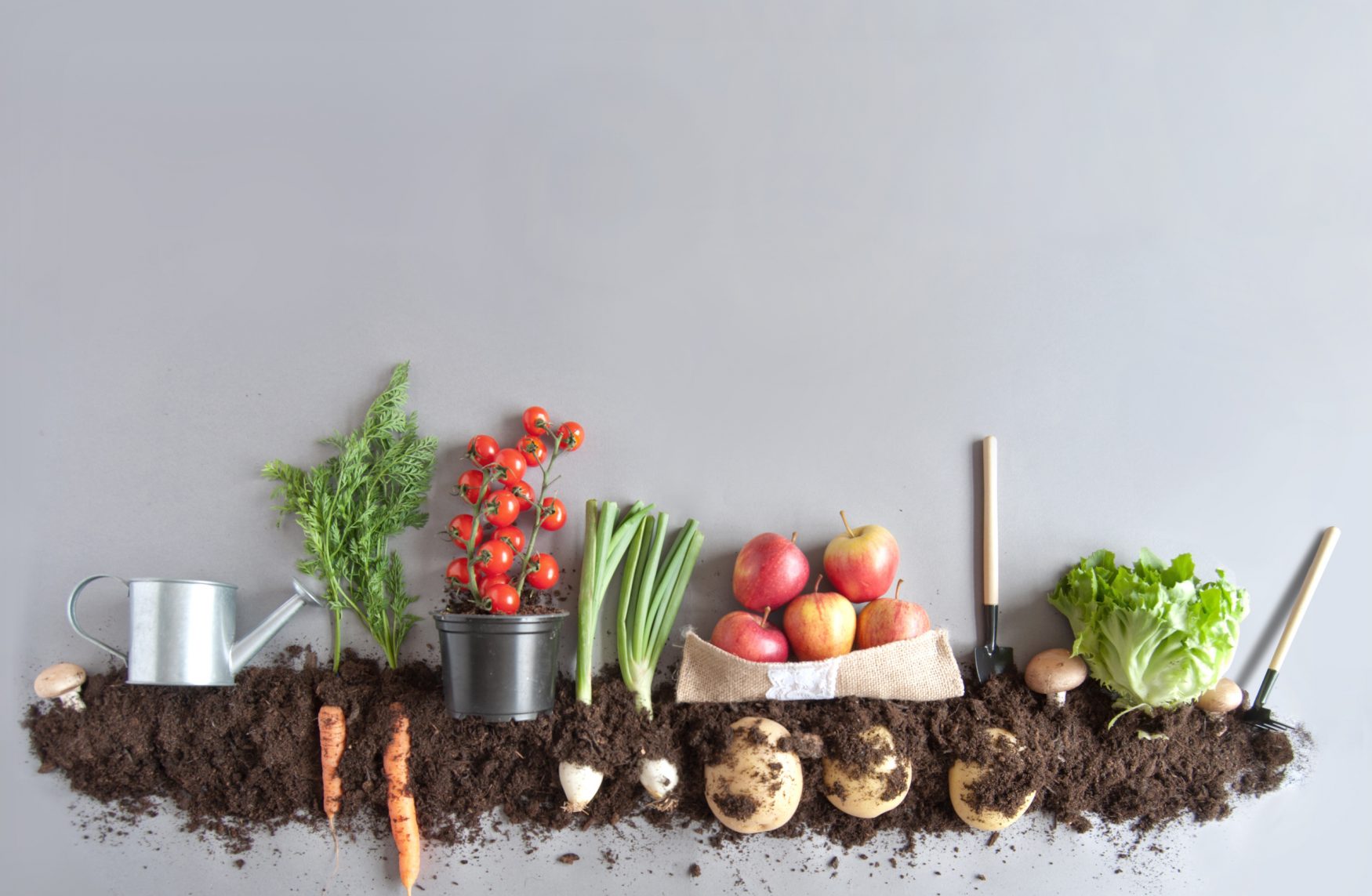
Why Eat Organic Food?
If You Eat Organic Food, You Give the Finger to the Elite Plus Build Yourself a Healthy Body.
Why should you eat organic food?
Well, besides the fact that you tell the international banking/industrial cabal that’s looking to control food even further that you reject their genetically modified food (GM food) crap. It’s also healthy for your body.
Organic food is actually one of the positive examples of how the wealthy cabal, which is always seeking ways to control the masses, is not as “all-powerful” as they’d like to believe.
While the cabal, the U.S. Government, and companies like Monsanto have been working on secretive agreements to patent food in their world domination games, the public has spoken.
More and more organic food stores are cropping up. The supermarkets where the cabal wants you to buy their GM poison have been forced to stock more organics alongside the fake food. It’s the best of both worlds for the “little guy”.
You get to build up a healthy body and give a huge middle finger to the elitist pigs like Rockefeller (who, by the way, is in bed with the U.S. Government / Monsanto corruption).
With that in mind, let’s look at some more reasons to eat organic food.
Eat Organic Food: Relevant GM Food Quotes
“Genetic engineering is inherently dangerous, because it greatly expands the scope for horizontal gene transfer and recombination, precisely the processes that create new viruses and bacteria that cause disease epidemics, and trigger cancer in cells.”
– Dr. Mae-Wan Ho
“Probably the greatest threat from genetically altered crops is the insertion of modified virus and insect virus genes into crops.
“It has been shown in the laboratory that genetic recombination will create highly virulent new viruses from such constructions.
“Certainly the widely used cauliflower mosaic virus is a potentially dangerous gene.
“It is a para-retrovirus meaning that it multiplies by making DNA from RNA messages.
“It is very similar to the Hepatitis B virus and related to HIV.”
– Dr. Joseph Cummins
“Context is crucial. Yet genetic manipulation of food ignores millions of years of evolutionary context, and that could have serious implications in the future.
“We aren’t dealing with an insignificant change to our diets here, we’re dealing with a revolutionary technology being used in our food supply – affecting us, future generations and the ecosystems on which we depend.”
– Dr. David Suzuki
“While the public was fed a steady barrage of revised, updated, and reworked regulatory guidelines, giving the appearance of rigorous scientific oversight, the insurance industry quietly let it be known that it would not insure the release of genetically engineered organisms into the environment against the possibility of catastrophic environmental damage.”
– Jeremy Rifkin
Eat Organic Food: MSG Facts
“Monosodium glutamate (MSG) – such a favorite flavor among food technologists, would probably fail to gain approval for use in food were it up for approval today.
“…No safety tests were ever done on MSG at the time it was first manufactured though it has subsequently emerged that people with allergies and asthma often react badly to very small amounts of this substance.
“The U.S. Food & Drug Administration estimates that around two per cent of the U.S. population is MSG reactive, though others would put this figure considerably higher.
“…Since glutamic acid can also cross the blood brain barrier and damage the nervous system it is now banned in baby foods.
“To date however no research appears to have been done to assess the impact or fate of MSG in children and caterers would find it very hard to exclude it from school diets without abandoning most processed foods.
“…Under current rules MSG maybe hidden under many names such as “hydrolyzed vegetable protein”, “natural flavoring”, “seasoning spices” and “plant protein extract”.
“…Organic food regulations prohibit the use of MSG, hydrolysed protein or any ingredient containing these.”
– Food for Life
Eat Organic Food: The Soil
“Many people are aware that food grown according to organic principles is free from exposure to harmful herbicides and pesticides, but that is only one small aspect of organic agriculture.
“A larger part of organic agriculture involves the health of the soil and the ecosystem in which crops and livestock are raised.
“Organic farmers recognize that healthy, vibrant, and live soils and ecosystems significantly benefit crops.
“Natural, undisturbed soil is alive with micro-biotic organisms that exist in harmony with the native plant life and the inorganic minerals that provide the soil’s substrate.
“Synthetic chemicals (such as herbicides, pesticides, and/or fast acting inorganic fertilizers) applied in or around crops interrupt or destroy the micro-biotic activity in the soil.
“Once the micro-biotic activity in the soil has stopped, the soil becomes merely an anchor for plant material.
“In this conventional method of agriculture (in use for only the past 75 of 10,000 years of recorded agriculture) plants can receive only air, water, and sunlight from their environment everything else must be distributed to plants by farmers, often from inputs transported thousands of miles to reach the farm.
“Plants are commonly fed only the most basic elements of plant life and so are dependent on the farmer to fight nature’s challenges, e.g. pests, disease, and drought.”
– Why Organic Food is Better Food

 My First Amazing Ayahuasca Experience
My First Amazing Ayahuasca Experience  Pine Needle Tea
Pine Needle Tea  The REAL Controllers of Humanity: The Papal Bloodlines
The REAL Controllers of Humanity: The Papal Bloodlines  Is it Global Warming or Cooling?
Is it Global Warming or Cooling?  Gun Rights and Obama Examined
Gun Rights and Obama Examined